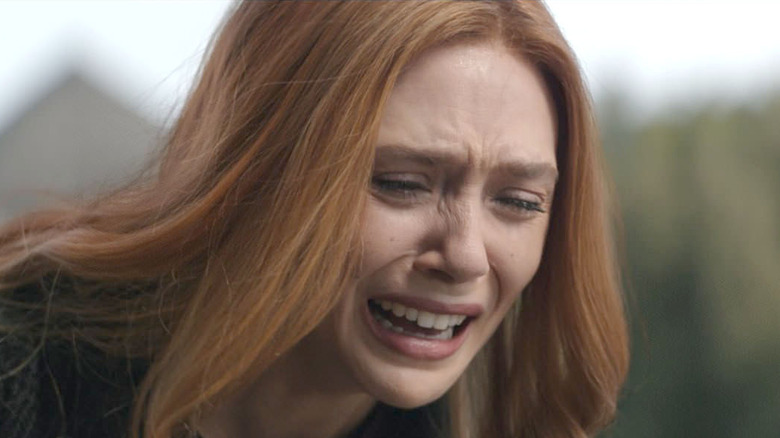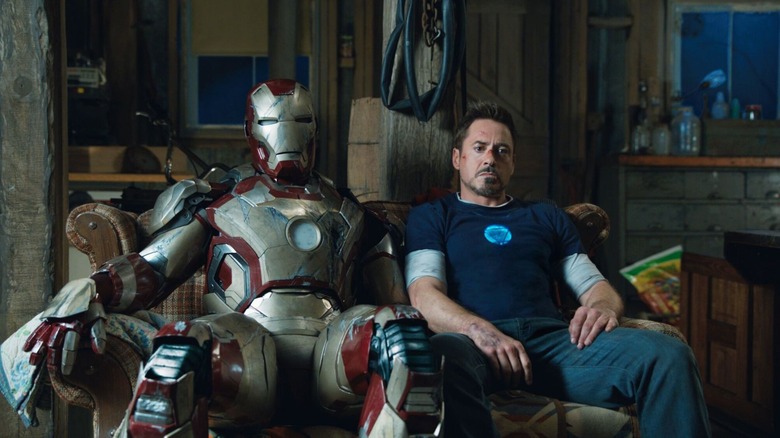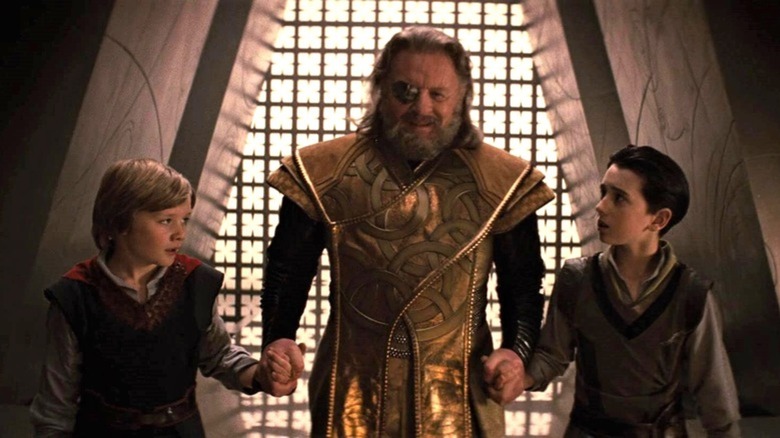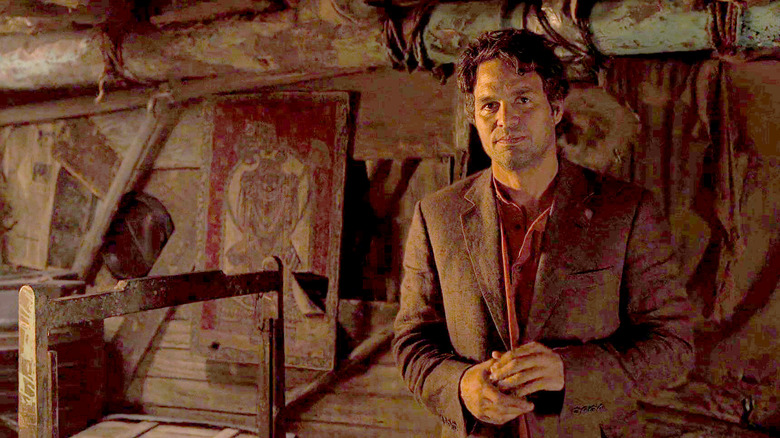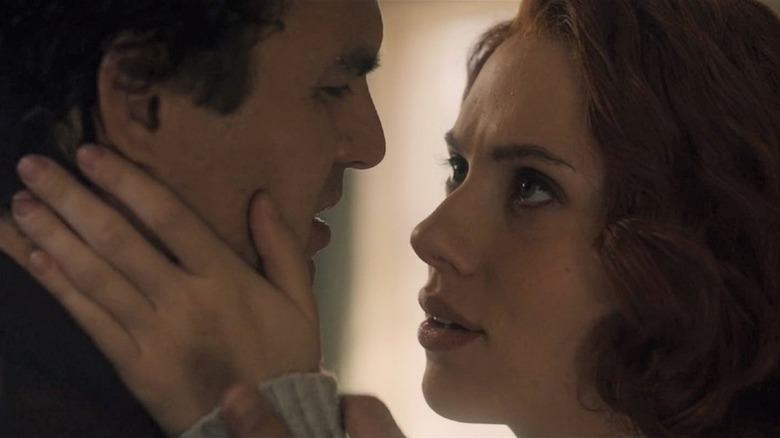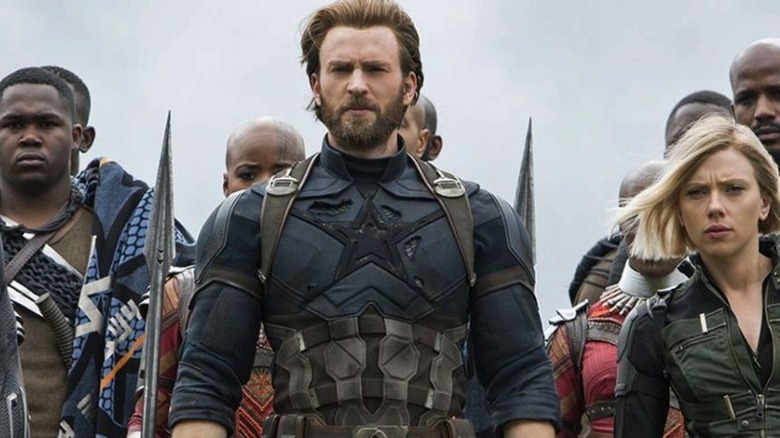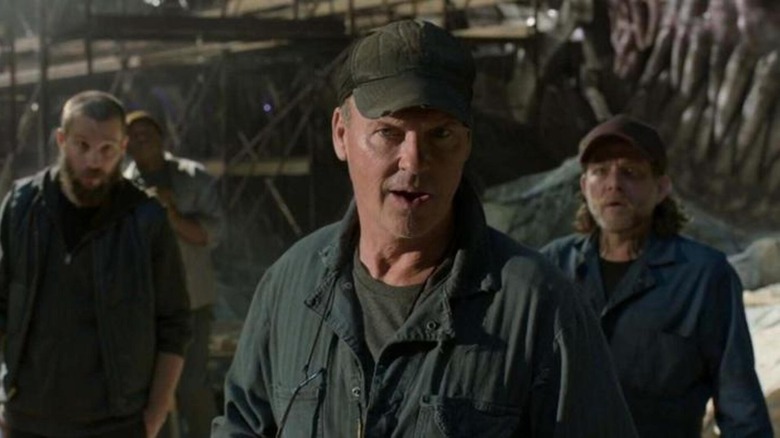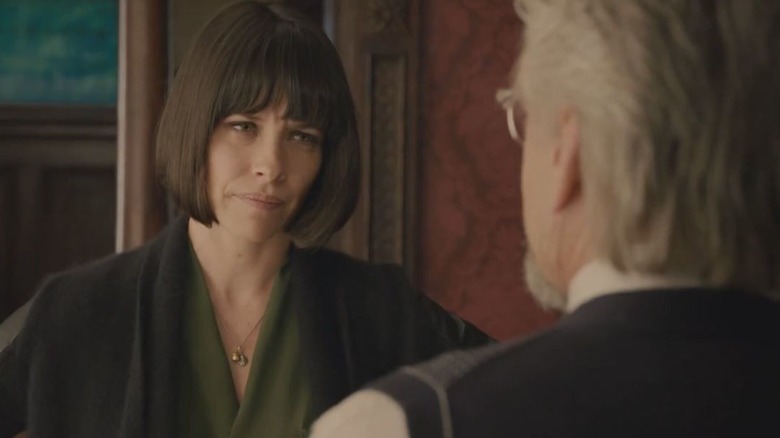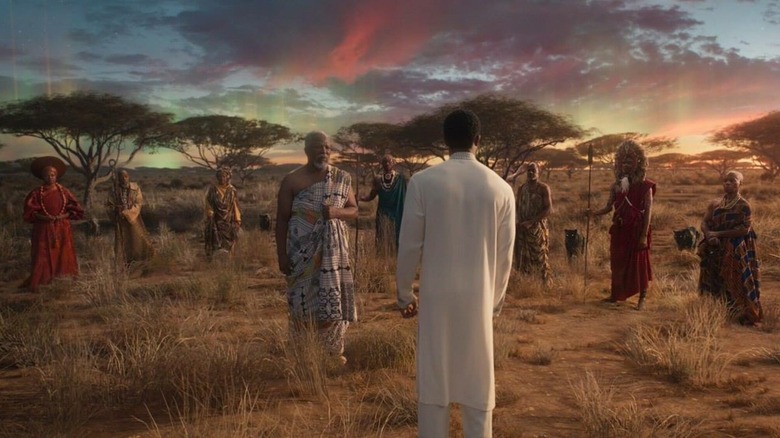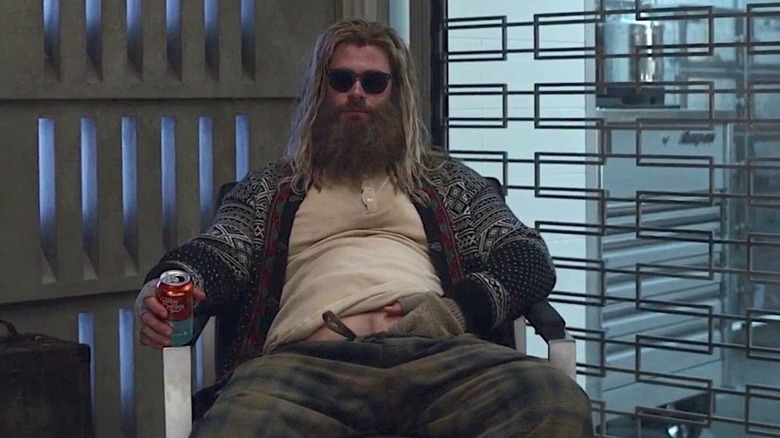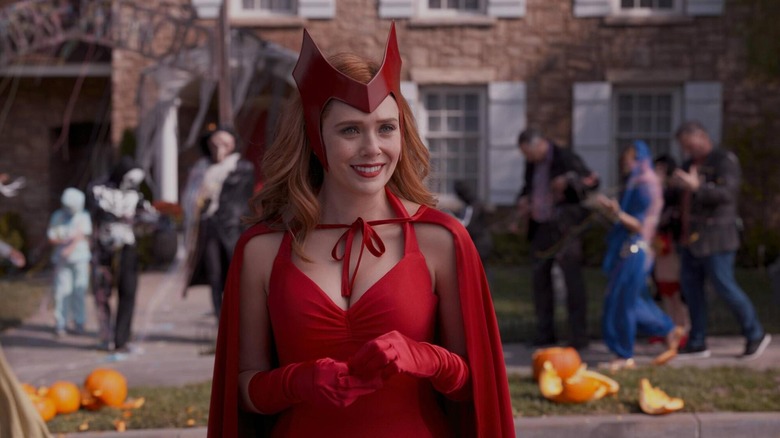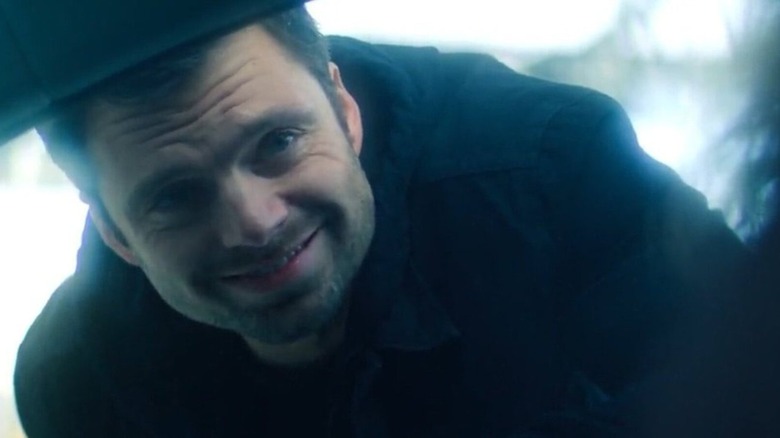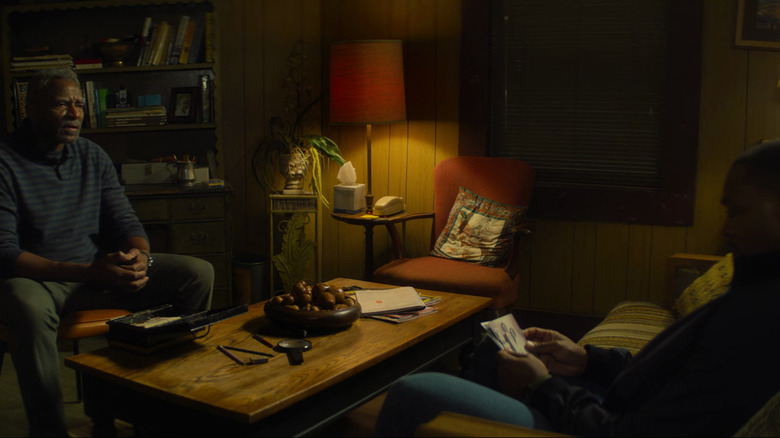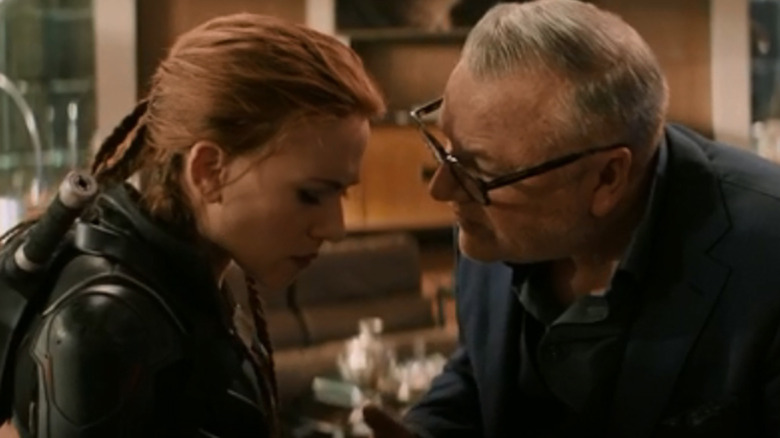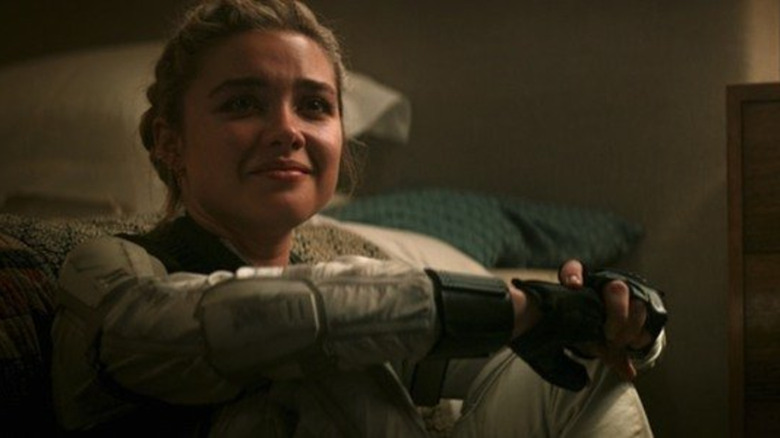Times The MCU Addressed Real-World Problems
The Marvel Cinematic Universe is generally acknowledged to be the dominant movie franchise of the past decade. With the MCU recently branching out with multiple Disney+ series, the franchise appears set to continue its dominance for the foreseeable future.
Along with such wild success, there will inevitably come criticism as well. Many in the film industry have begun to resent the fact that the MCU has such a tight stranglehold on the box office. Recently there has been a growing discussion, kickstarted by Martin Scorsese, about whether or not MCU films constitute "real cinema" that touches on real-world themes, instead of merely being two hours of cartoon-like characters kicking and punching each other.
While there is certainly a lot of kicking and punching involved, it would be wrong to say Marvel movies are only ever good for hollow spectacle. The main characters and events of the franchise are grounded in real emotions and problems that people have faced since forever, from the loss of loved ones to trauma after witnessing violence at close range. Here are 14 times the MCU got real with its audience.
Tony Stark suffers from PTSD
In "Iron Man 3," years of Tony Stark (Robert Downey Jr.) fighting terrorists, supervillains and alien armies as Iron Man finally catch up with him. Throughout the movie we see Tony having flashbacks to that traumatic battle against the Chitauri in New York, when it seemed certain Tony would die.
It soon becomes apparent that Tony is suffering from Post Traumatic Stress Disorder (PTSD), and it is tearing his life apart. He begins using the Iron Man armor as a safety blanket, spending all his time wearing it while obsessively preparing for attacks against real and imagined enemies. Watching Tony's downward spiral while his friends and loved ones could only watch helplessly was a sobering experience for MCU fans who had grown accustomed to the cocky and always self-assured billionaire playboy.
Fortunately, Tony shows what he is really made of when he manages to win out against his enemies without the help of his armor, relying on his natural cunning and ingenuity. To further aid his recovery, Tony also destroys all of his armored suits as he comes to realize that even without the suits, he will always be Iron Man.
Loki always felt like an unloved child
For all his posturing about being a god and filled with glorious purpose, it has repeatedly been shown that Loki (Tom Hiddleston) is nothing more than a lonely man filled with rejection from his childhood, when he perceived his father Odin (Anthony Hopkins) as being more favorable to his brother Thor (Chris Hemsworth) than himself.
Whether this favoritism was real or imagined, it poisoned Loki's mind against his brother. The final straw that broke the camel's back was when Loki discovered he was not even Odin's real son, but a frost giant youngling that Odin had discovered and taken under his care. Once and for all, Loki became convinced he did not belong on Asgard with his so-called family. These traumatic events fueled all of Loki's misadventures across the MCU. As Loki said to his brother in "Thor: Ragnarok," "Hurts, doesn't it? Being lied to. Being told you're one thing and then learning it's all a fiction."
And yet, despite repeatedly declaring himself a villain, Loki never stopped craving love and acceptance. That is what eventually led him back to his brother's side, as Thor and Loki made their final stand against Thanos together. That version of Loki died bravely fighting against the Mad Titan, having realized his "glorious purpose," which turned out to be very different from what he had always imagined it to be.
Bruce Banner was riddled with guilt
There is no more tragic figure in the MCU than Bruce Banner (Mark Ruffalo). With whatever trauma they endured, all the other characters to some degree voluntarily chose to become soldiers in the various wars that took place across the MCU. Bruce never chose to become The Hulk, who left a path of destruction wherever he went. He was a scientist working on an experiment when a freak accident turned him into an unstoppable rage monster the likes of which the world had never seen before.
One of the most tragic moments regarding Bruce Banner aka The Hulk is also one that many fans overlook. In "The Avengers," when Natasha Romanoff (Scarlett Johansson) finds Bruce hiding out in a derelict home, he remarks, "You don't always get what you want," while rocking an empty cradle. The implication is clear. All Bruce wants to do is find a partner, settle down, and raise a family in peace.
Instead, his guilt over his actions as The Hulk drove Bruce to extreme measures. He mentioned once putting a gun in his mouth and pulling the trigger because he just wanted to end his existence at all costs. Later, the destruction The Hulk wreaked in "Avengers: Age of Ultron" drove him off the planet itself. Hopefully, the new sense of peace that Bruce had achieved in "Avengers: Endgame" after merging his human self with his greener half will be a lasting solution, and the monster will finally be put to rest for good.
If you or anyone you know is having suicidal thoughts, please call the National Suicide Prevention Lifeline at 1-800-273-TALK (8255).
Natasha Romanoff felt like a monster
In the beginning of her stint in the MCU, not a lot was known about former assassin Natasha Romanoff. After she became romantically involved with Bruce Banner, Natasha disclosed to him that she felt like she was as much of a monster as The Hulk, because of events that had happened in her past that were outside her control.
As a young girl, Natasha was a part of an assassin program called the "Red Room" project. As part of the training, Natasha was forced to undergo a procedure that removed her reproductive organs. Just as Bruce was tormented by the thought of never being able to have kids, Natasha had the same concerns about herself. After telling Bruce about the procedure, she asked him, "You still think you're the only monster on the team?"
This particular storyline came in for a great deal of controversy, as feminist writers protested the idea that a woman might feel like a monster just because she is unable to have children. But the matter weighed heavily on Natasha's mind and made her feel like less of a person.
Steve Rogers had to go against his country
The one thing that has always defined Steve Rogers aka Captain America (Chris Evans) has been his unflinching devotion to his country. This single-minded devotion has also often been used to make the claim the character is "boring." The MCU decided to use this situation to their advantage by putting Cap in a situation where he must choose between his country and his ideals.
"Captain America: The Winter Soldier" was the primer for this take on Cap. After discovering that HYDRA had infiltrated SHIELD, Steve has no choice but to work against the government to bring down the malefactors. "Captain America: Civil War" doubled down on this approach when superheroes were required to work under orders from world governments. Once again, Steve had to go against his country's officials, and some of his friends, to do what he believed to be the right thing.
In both cases, Steve had to think long and hard about what being the living embodiment of America meant to him. In every case, he decided the ideals of freedom and justice were what deserved to be upheld, rather than blindly following the orders of the current government's administration. In making that choice, Steve exemplified the difference between hardline nationalism and even-tempered patriotism.
Adrian Toomes felt the pain of regular blue-collar workers
Adrian Toomes (Michael Keaton) had no intention of getting caught up in the superhuman business. He was an ordinary blue-collar worker who ran a salvage company to take care of his wife and daughter. Everything changed after the battle of New York against the Chitauri in which the Avengers almost leveled the city trying to stop Loki's army.
After the battle, Toomes' cleanup crew was unceremoniously replaced by Tony Stark's company. That was when Toomes realized in this new world of gods and aliens and monsters, there was no place left for an ordinary, working-class Joe.
That was when Toomes stepped up his game by becoming the supervillain Vulture who showed up in "Spider-Man: Homecoming." Even though he was the antagonist, Toomes' priority still remained the well-being of his family. The struggles of the Vulture are mirrored in the real world, in which you see giant corporations and distant governments making decisions for all of humanity with little participation from the people on the ground struggling to get by.
Hank Pym grew estranged from his daughter
Before Scott Lang (Paul Rudd) became Ant-Man, the title belonged to Hank Pym (Michael Douglas). The life of the original Ant-Man was a troubled one. He used to be a superhero alongside his wife, Janet, who was the Wasp. But a freak accident during one mission left Janet apparently dead, and Hank retired from his work as Ant-Man.
The worst part of the whole ordeal was that Hank never felt he could tell the truth about her mother's disappearance to their daughter, Hope. As a result, the relationship between Hank and Hope grew increasingly strained. Not only did Hope grow up without a mother, but she also felt hurt and rejected by her father, while Hank grew increasingly bitter over his failures as a husband and a father.
Thankfully, these issues were finally resolved after Hank told Hope the truth about her mother's disappearance, and the two actually managed to bring Janet back from the quantum realm in "Ant-Man and the Wasp." Things are still not 100% all right between Hank, Janet and Hope, but the three can finally start being a real family again.
T'Challa bore the weight of Wakanda's failures
T'Challa aka Black Panther (Chadwick Boseman) is so much more than a superhero. He is the protector of the highly advanced and secret nation of Wakanda. After becoming the new king, T'Challa realizes Wakanda has not always been the symbol of peace and progress he imagined it to be.
The biggest betrayal T'Challa experienced was realizing his father had killed his own brother and abandoned his nephew to protect the secrets of Wakanda from the rest of the world. As Erik Killmonger later points out, Wakanda could have done a great deal to help fight slavery across the world if they had not been so obsessed with staying hidden.
That T'Challa realizes the truth of Killmonger's statements is clear when T'Challa confronts his ancestors about their protectionist policies, exclaiming, "You were wrong — all of you were wrong — to turn your backs on the rest of the world! We let the fear of discovery stop us from doing what is right. No more!" Despite being enemies, Killmonger helped T'Challa understand his responsibilities were not just to Wakanda but to the entire world.
The Avengers said goodbye to half the planet's population
After the blockbuster spectacle that filled every inch of "Avengers: Infinity War" to the brim, fans were surprised by how sober the first half of the sequel "Avengers: Endgame" was. That sober approach was necessary, considering half the planet's population had disappeared.
At the start of the movie, we see many realistic depictions of people struggling to cope with great loss. Steve Rogers had hung up his shield and chose instead to act as a counselor for people trying to process their feelings of grief and emptiness. Meanwhile, Thor had buckled under the weight of his failure at stopping Thanos and become a shut-in who played video games and ate and drank all day.
All the other main characters were also dealing with private losses in different ways, from Tony's outburst against Steve to Natasha desperately trying to track down anyone who could help them get out of the living nightmare their lives had become. It was the lowest point, not just for the Avengers, but the entire world, and the movie made sure to treat the narrative with the gravity it deserved.
Wanda endured the five stages of grief
Wanda Maximoff (Elizabeth Olsen) started out as a supporting character before taking center stage in her own Disney+ series "WandaVision." The series showed Wanda coping with the loss of her android boyfriend Vision (Paul Bettany) by creating an illusionary town in which nothing ever goes wrong and she and Vision are living happily with their children.
Many critics have pointed out that "WandaVision" is divided into five segments representing the five stages of grief that Wanda goes through to cope with her past trauma. The first step is denial, shown in the first two episodes where Wanda is happy living in her false reality and refuses to acknowledge any information that might force her to confront the truth. The second stage is anger, which occurs when Wanda meets Monica Rambeau. Wanda thinks Monica is a threat to her perfect life and reacts by angrily throwing her out of her town.
The third stage is bargaining. This is what Wanda does with the SWORD agents standing guard outside her town, promising that she will leave them alone if they leave her alone inside her false reality. Then comes the fourth stage, which is depression. We see Wanda growing listless and apathetic, not willing to get out of bed until Agatha (Kathryn Hahn) forces her into a confrontation. Then comes the final step in the series finale, acceptance, when Wanda finally accepts that her perfect reality is an illusion and her happy family does not actually exist.
Bucky tried to make amends
Bucky Barnes (Sebastian Stan) had lived a tortured existence ever since he was captured by HYDRA during World War II. Bucky was given a serum similar to Steve Rogers and turned into the brainwashed assassin the Winter Soldier. Finally, after several decades, Bucky was broken out of his conditioning by Steve and became a free man again.
Just because he was physically free did not absolve Bucky of his past sins. The many murders he had committed as the Winter Soldier were a constant source of guilt and shame, so much so, he had to undergo therapy during "The Falcon and the Winter Soldier." As part of the therapy, Bucky sought to find the relatives of his past victims and seek their forgiveness.
It was a painful journey that Bucky had to face alone now that Steve was out of the picture. But in the end, he was able to find some modicum of peace of mind, and even an unlikely new family in Sam Wilson's (Anthony Mackie) relatives.
Sam Wilson had grave concerns about becoming Captain America
At the end of "Avengers: Endgame," Steve Rogers passed on his iconic Captain America shield to Sam Wilson aka The Falcon. Even though he had Steve's blessing, Sam was reluctant to take on the mantle of Captain America. Sam felt so strongly about the matter that he even willingly gave up the shield to the government.
When Bucky found out about this, he felt Sam had betrayed Steve's memory by giving up the shield. As the events of "The Falcon and the Winter Soldier" showed, the situation was much more complicated than Bucky understood. As a Black man, Sam faced a host of challenges that Steve never did. This matter was perfectly exemplified by the character of Isaiah Bradley, who was the first Black man to be given the super-soldier serum, but whose services to the country were never publicly acknowledged.
Sam had to think long and hard about whether he wanted to become the new Black Captain America, with all the connotations and responsibilities that would entail in the modern era. Finally, with Bucky's full support, Sam took up the mantle of the Captain and also helped Isaiah gain formal acknowledgment from the government for his services to the nation.
Black Widow looked at female trauma in abusive relationships
2021's "Black Widow" may play like a female version of a "James Bond" movie, but it is based in something much more real and hard-hitting. The film turns a spotlight on abusive relationships in which women have to silently suffer at the hands of their abusers due to a power imbalance.
This meta narrative of the movie about female trauma has been repeatedly pointed out by the cast and crew of the film. The victims of the "Red Room" program, dubbed "Black Widows," are women who have been brainwashed, stripped of their reproductive organs, and forced to become killing machines.
In a particularly harrowing scene, we see Natasha unable to raise a finger against the director of the Red Room because of the mental power he has over her, even as he physically abuses her. In the end, the Widows are able to escape their mental captivity and become free women, and Natasha is finally able to lay to rest the demons of her tortured past.
Yelena's family memories were a false reality
The breakout character in "Black Widow" was Yelena Belova (Florence Pugh). Her relationship with Natasha was a sad one. At a young age, Yelena thought she and Nat were sisters until the day Yelena realized her parents and sister were Russian spies who had only been together for the sake of a mission in America.
Yelena never forgot this betrayal, even when she was inducted into the "Red Room" program and turned into a killer. Years later, when Yelena met Natasha and the two who once pretended to be her parents, she had still not gotten over the memories of her childhood as she declared, "It was real to me!"
After decades, Yelena was finally able to patch things up with Natasha at the end of "Black Widow." Then Natasha died in "Avengers: Endgame" and Yelena was once again left without her big sister, whom she adored. It remains to be seen where Yelena's feelings of loss and hurt take her next on her journey deeper into the MCU.
